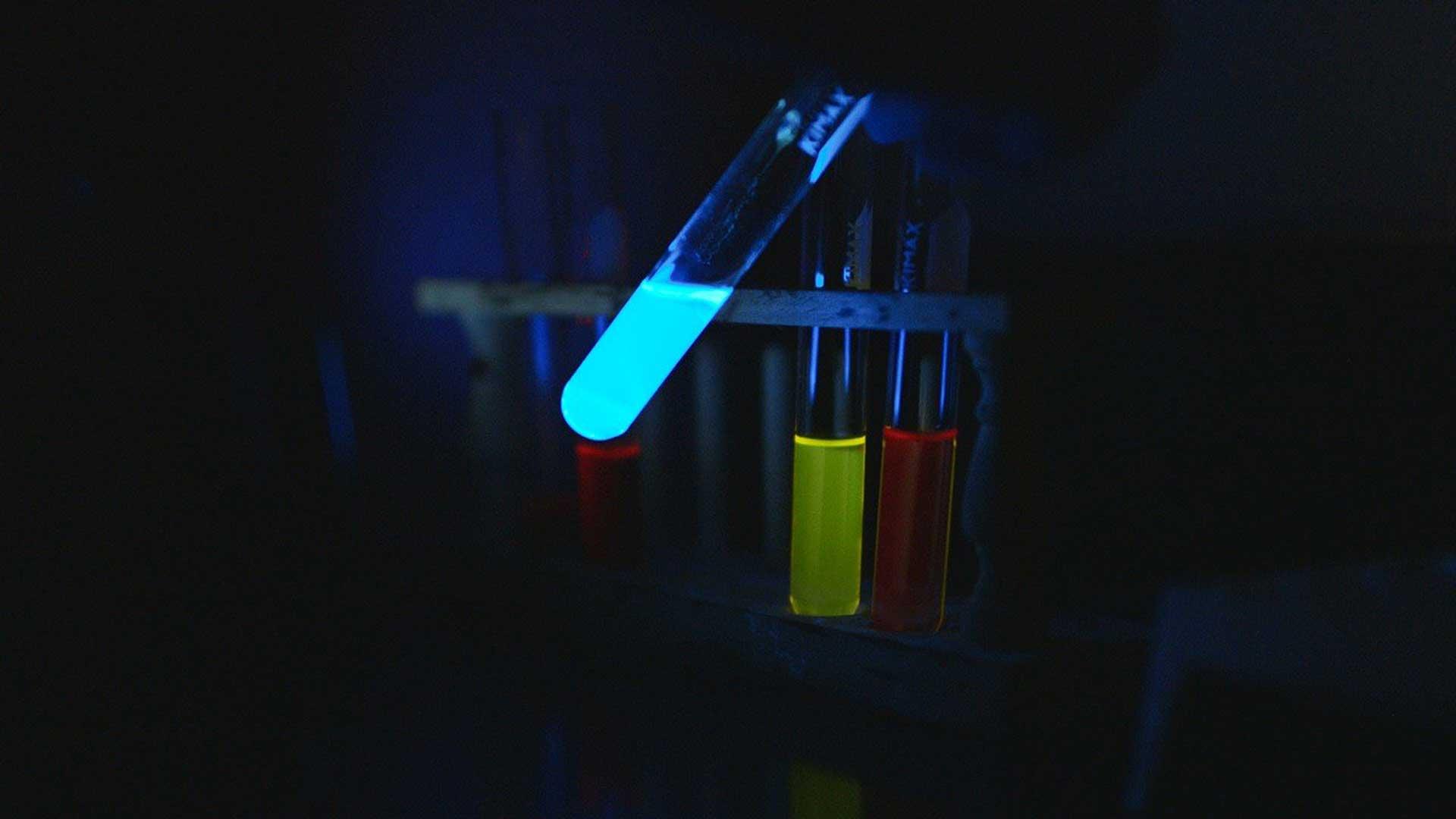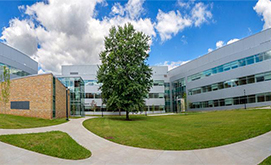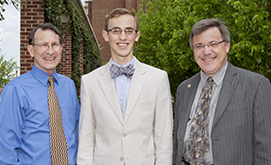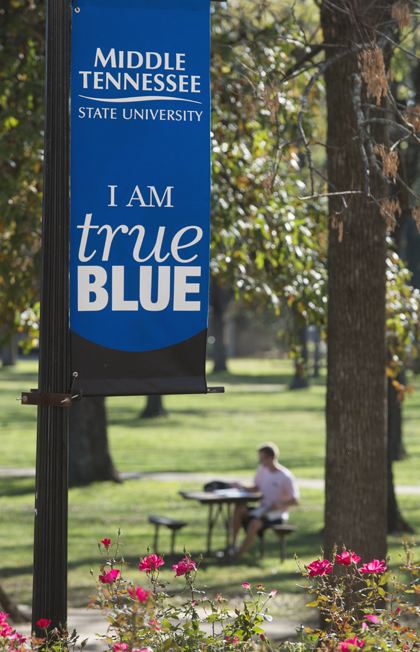
Chemistry
Solve global challenges like climate change, disease, and clean energy. Get a strong foundation and diverse career opportunities.
Chemistry, B.S.
Chemistry is central to many scientific fields of study and chemists are involved in solving in the world's greatest challenges such as climate change, disease, and clean energy.
At MTSU you'll build a strong background in the traditional areas of chemistry—analytical, biochemistry, inorganic, organic, and physical chemistry along with mentored research and internship courses, and plenty of electives to choose from, such as computational, environmental, medicinal, and polymer chemistry. A degree in Chemistry prepares students to think critically and creatively as effective problem solvers. Graduates can continue on to graduate or professional school or find immediate employment in a wide variety of high-demand fields, including health professions (e.g.medical, dental, pharmacy); environmental, polymer, or pharmaceutical industry; or teaching.
News Briefs

The game changer
Students choosing to study science at MTSU likely will get to learn and work in a new $147 million facility representing the state's largest capital investment in higher education. The science building comprises 37 class laboratories, two open labs, 13 research labs, six classrooms, some 1,500 student stations in labs and classrooms, chemistry and biology faculty and staff offices, numerous informal learning areas, and space for student presentations. Opportunities for pursuing exciting programs in science are greater than ever.

Welcome to the club
Jordan Dodson is the latest chemistry student to win a prestigious Goldwater Scholarship. Designed to foster and encourage outstanding students to pursue careers in mathematics, the natural sciences, and engineering, the award will contribute $15,000 over two years to help Dodson, a sophomore when he received the honor, in the pursuit of his academic and career goals. Dodson joins a growing list of Goldwater Scholars, including Evan Matthew Craig, Heidi Klumpe, and alumnus Taylor Barnes, MTSU's first Goldwater recipient in 2007.
News Briefs
The game changer

Students choosing to study science at MTSU likely will get to learn and work in a new $147 million facility representing the state's largest capital investment in higher education. The science building comprises 37 class laboratories, two open labs, 13 research labs, six classrooms, some 1,500 student stations in labs and classrooms, chemistry and biology faculty and staff offices, numerous informal learning areas, and space for student presentations. Opportunities for pursuing exciting programs in science are greater than ever.
Welcome to the club

Jordan Dodson is the latest chemistry student to win a prestigious Goldwater Scholarship. Designed to foster and encourage outstanding students to pursue careers in mathematics, the natural sciences, and engineering, the award will contribute $15,000 over two years to help Dodson, a sophomore when he received the honor, in the pursuit of his academic and career goals. Dodson joins a growing list of Goldwater Scholars, including Evan Matthew Craig, Heidi Klumpe, and alumnus Taylor Barnes, MTSU's first Goldwater recipient in 2007.
Related Media

To study chemistry is to prepare for any number of careers, many of which do not necessarily involve lab coats and flasks. Examples include
- Agricultural scientist
- College professor
- Crime lab analyst
- Environmental health specialist
- Food scientist technician
- Forensic chemist
- Hydrologist
- Industrial hygienist
- Pharmaceutical sales representative
- Product tester
- Quality assurance manager
- Science lab technician
- Toxicologist
- Water purification chemist
Employers of MTSU alumni include
- Aegis Sciences
- Baxter BioScience
- Belcher Pharmaceuticals
- Case Western Reserve University School of Medicine
- Federal Bureau of Investigation
- Liquidia Technologies
- Merck Pharmaceutical
- Pfizer
- Specialized Assays
- St. Jude Children's Hospital
- TBI Crime Laboratory
- University Hospitals
- Vanderbilt University



A study of the composition and properties of matter, chemistry exists at the crossroads of geology, physics, and biology. That makes a chemistry degree a natural choice for any student who possesses a general love of science—pretty much wherever you look, there's chemistry to be done! Study at MTSU includes traditional areas—analytical, biochemistry, organic, inorganic, and physical—as well as computational, polymer, medicinal, and environmental chemistry.

CONTACT US

Please fill in the form below and we will contact you very soon










